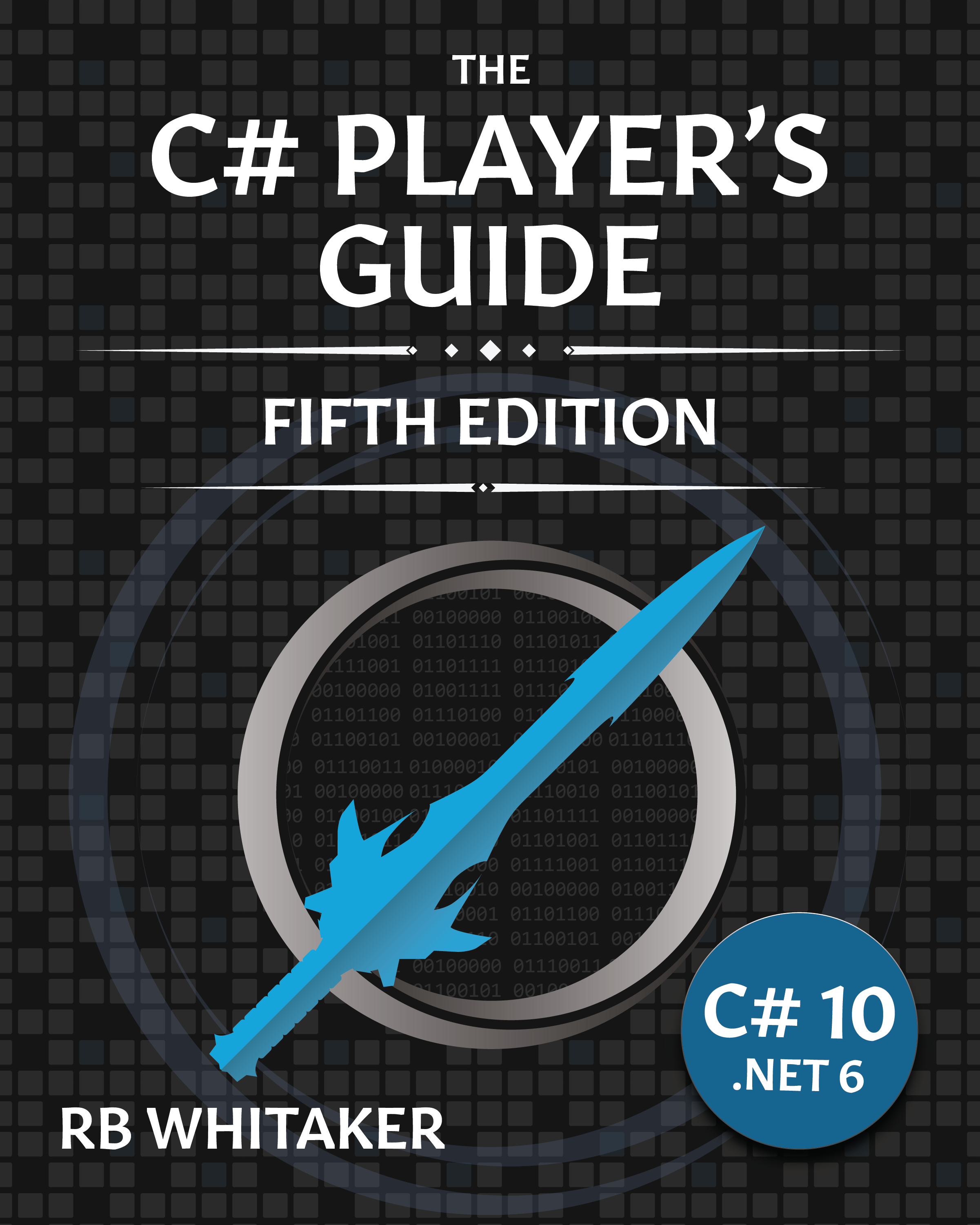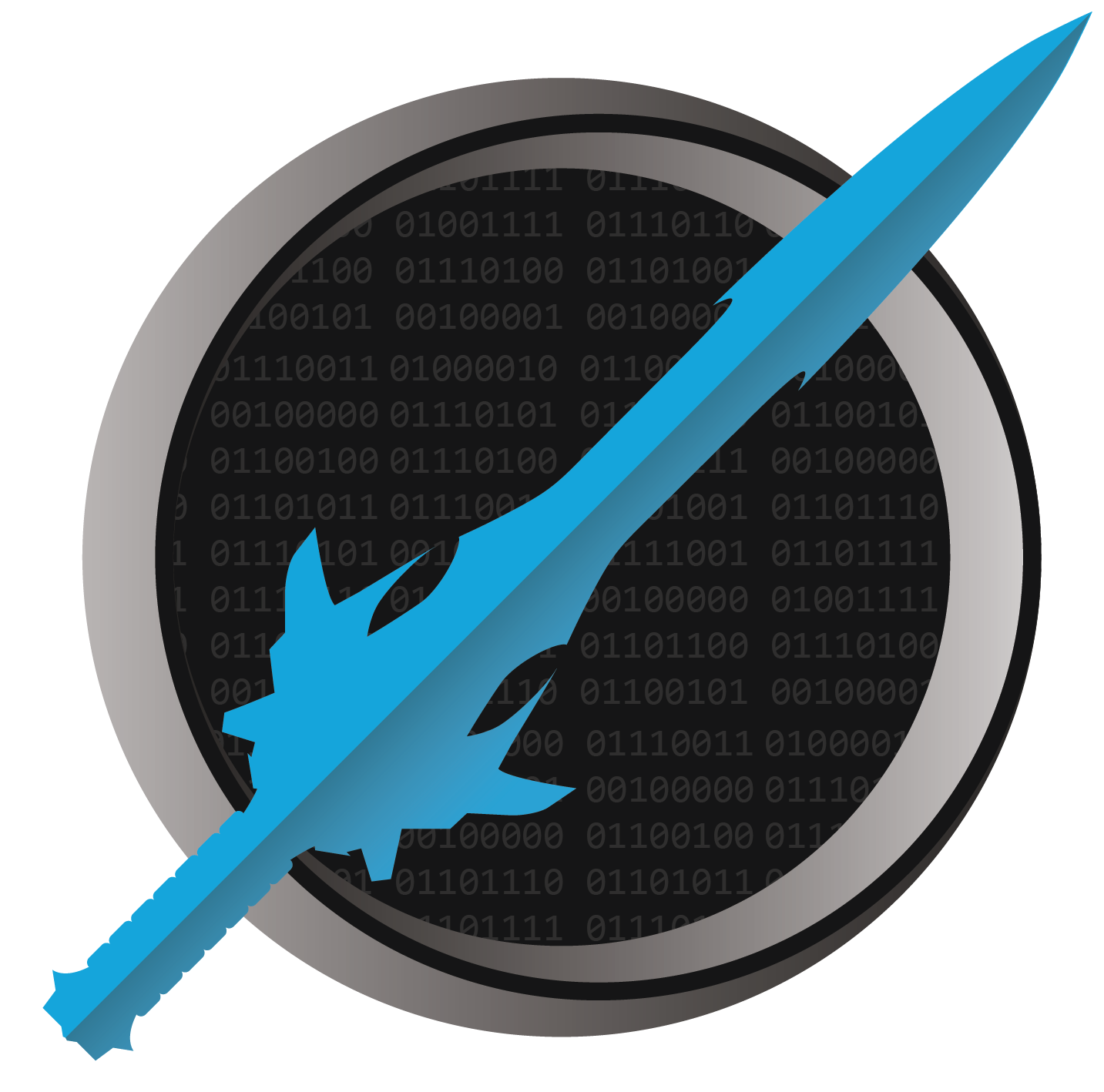About the C# Player’s Guide

Hello there, soon-to-be Master C# Programmer!
The C# Player’s Guide is a different kind of programming book. Like an entertaining video game, programming is an often challenging but always rewarding experience. This book shakes off the dusty, dull, dryness of the typical programming book, replacing it with something more exciting and flavorful:
- A bit of humor.
- A more casual tone.
- Examples involving dragons and asteroids instead of bank accounts and employees.
And since you learn to program by doing instead of just reading, this book contains over 100 hands-on programming challenges. You will be building software instead of just reading about it. By completing the challenges, you’ll earn experience points, level up, and become a True C# Programmer!
This book covers the C# language from the ground up. It doesn’t assume you’ve been programming for years, but it also doesn’t hold back on exciting, powerful language features.
- The journey begins by getting you set up to program in C#.
- We will then explore the basic mechanics of writing C#: statements, expressions, variables, if statements, loops, and making code reusable with methods.
- Next, we dive deep into a powerful and central feature of C#, object-oriented programming–an essential tool needed to build larger programs.
- We then look at the advanced C# features that make the language unique, elegant, and powerful.
With this book as your companion, you will soon be off to save the world (or take it over) with your own C# programs!
Get the Book!
Get the Digital Copy!
If you'd prefer a digital PDF copy, you can buy it through Gumroad today!
Frequently Asked Questions
Do I already need to know how to program to read this book?
No, this book does not assume you know anything about programming. If you’ve never programmed before, or only tinkered with programming in the past, I think you will find this book useful and enjoyable.
So will I be bored if I already know how to program in another language?
I don’t think so. I’ve tried to structure the early part of the book in a way that experienced programmers can read the Speedrun sections and get through it fast, while still leaving a lot of C# in the book beyond that for experienced programmers new to C#.
Does this book teach you how to make games?
This book is not specifically about making games–it is about C# programming.
But C# is an often used language for game development because it is a good combination of being easy to use and powerful.
In addition, many of the challenges in this book require writing small (and not-so-small) games, including Tic-Tac-Toe, a game similar to Hunt the Wumpus, and the Final Battle challenge at the end of the book is also a turn-based battle game. Many other challenges involve building a slices of games or mini-games as well.
So the focus isn’t on games specifically, but I’m confident that if you do the challenges, you will come away feeling like you can start using something like Unity, Godot, or MonoGame to start making games.
Does this book teach you how to build GUI applications, mobile apps, or web apps?
The book touches on these topics briefly, but each of these topics are extremely complex in their own right, and the starting point of each of these demands rather deep C# knowledge. Sure, you can attempt to learn both simultaneously. Many even succeed at it. But it does make sense to focus on one task at a time, beginning with the basics of C#, and then moving on to the specific app model.
So it doesn’t teach you much about these, but gives you a solid foundation to move forward with them once you know the basics of the language.
Will I know everything about C# when I get done?
No book covers it all. I’ve tried to cast a pretty wide net, and cover the things every programmer uses in depth, and the things most programmers use as well. The places the book may not cover are when you combine certain advanced features with other advanced features, you sometimes slip into the land of Deep Magic.
How does this compare to earlier editions?
The details of what’s changed can be found here: What’s New in the 5th Edition.
Is This Book Right for Me?
In short, if you’re new to C#, I think you’ll like this book.
But if you have a special situation and want advice or insight into how or how much this book might help, please reach out to me and ask.
I obviously have my biases, but I really don’t want people to feel like they’re wasting their time or money with my book. I have talked several people out of buying my book because I didn’t think it was right for them.
If you want advice on if this book will be helpful in your specific situation, I’m happy to talk it through with you!
